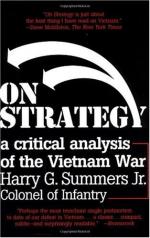|
This section contains 5,409 words (approx. 19 pages at 300 words per page) |

|
SOURCE: "Linguistics, Mechanics, and Metaphysics: Anthony Burgess's A Clockwork Orange (1962)," in Critical Essays on Anthony Burgess, edited by Geoffrey Aggeler, G. K. Hall, 1986, pp. 121-31.
In the following essay, originally published in 1976, Petix discusses the philosophical underpinnings of Burgess's fiction and examines the ways in which they are manifested in A Clockwork Orange.
The second half of the twentieth century has passively acknowledged the emergence of its most controversial gadfly, John Anthony Burgess Wilson: philosopher, critic, theologian, linguist, musician, academician, and author. Yet the seemingly facile task of the Burgess critic is not so much a matter of ascribing priorities within Burgess's various spheres of expertise, but rather (and amazingly) in shouldering the onus of redressing the dearth of any critical attention. Serious and exhaustive research reveals that Burgess's tremendous energy and soaring imagination have netted only moderate acclaim, a modicum of intellectual authority, and a quasi-reputation as...
|
This section contains 5,409 words (approx. 19 pages at 300 words per page) |

|


